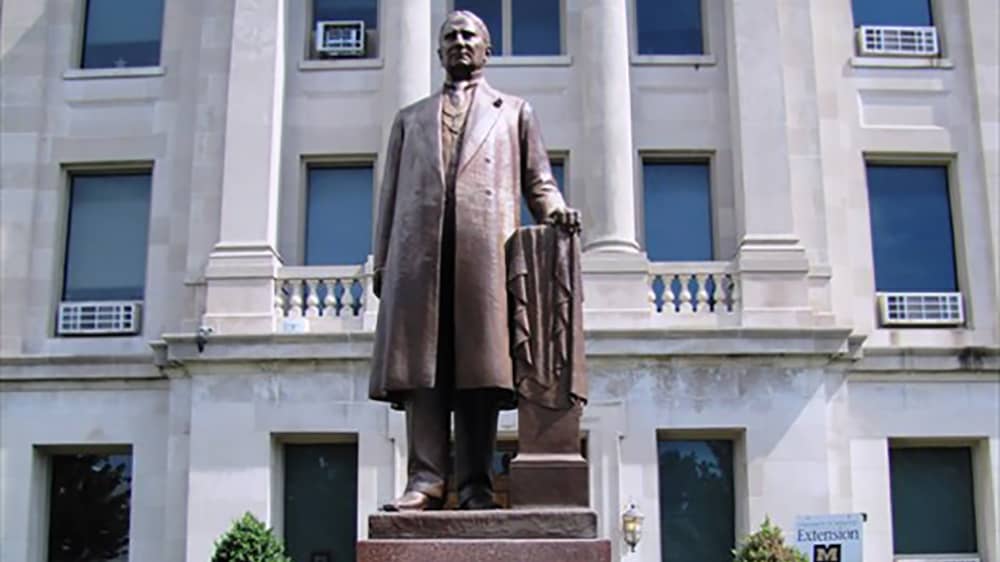
BOWLING GREEN, Mo. — Champ Clark probably had offered an explanation countless times.
But when you’re running for the nation’s top political job, people want to hear it again.
Bowling Green’s Champ Clark Heritage Festival on Sept. 10 shined the spotlight on an astute man whose popularity was tied as much to his name as to his abilities.
Clark was an educator and lawyer who came to Pike County with pennies in his pocket and rose to become Speaker of the U.S. House of Representatives. In 1912, he sought the Democrat nomination for president, and voters had questions about the origin of his name.
“The usual reference books give no light on the question,” one newspaper complained. “Is it a real name, a nickname, a convenient abbreviation of an inconveniently long name?”
The Speaker was christened James Beauchamp Clark on March 7, 1850. Early in life, he went by “J.B” or James Clark. At one point, that led to another James Clark getting Champ’s mail.
“And what was worse, (the man) never bothered to return letters that came to him by mistake, but just tore them up and threw them away the moment he saw they weren’t his,” the Washington Herald said.
The newspaper did manage to find a silver lining.
“If that other J.B. Clark hadn’t torn the letters up, Champ would still be James Beauchamp Clark,” it noted. “And what chance would he have had to be an actual presidential candidate? The chances are that the present Speaker would have ended up teaching in a night business college.”
Clark did use his middle name for a while. The Kentucky folk he grew up around knew the moniker was properly pronounced “Bee-champ.” Pike County residents had another take on it.
“My friends insisted on pronouncing it ‘Bo-champ’ or abbreviated it to ‘Bo,’” Clark said. “I thought I would save them trouble by abbreviating it myself and began to write it ‘Champ Clark.’”
Political observer Jim Smuthers said in 1912 that Champ “is a name that commends itself to the common people. It sounds like the name of a man who can ride in a street car, hold a pair of plow handles, smoke five-cent cigars, eat a mess of corn beef and cabbage in the middle of the day and call his friends by their first names.”
Of the many great decisions Clark made in life, the name choice may have been one of the best.
“It has been a good asset,” he admitted. “It is short enough to usually be printed in full. Look at any list of ‘those present’ in the papers. Others are mentioned by surnames only, but my name is printed ‘Champ Clark.’”
Alas, even such a standout name could not propel the talented Missourian to the White House. Though the frontrunner for much of the balloting, he eventually lost the nomination to New Jersey Gov. Woodrow Wilson, who defeated incumbent Republican William Howard Taft and third-party candidate Theodore Roosevelt in the general election.
Clark died at 70 on March 2, 1921. His Bowling Green home, Honey Shuck, has been preserved and is available for tours. More information is available at www.champclark.org.